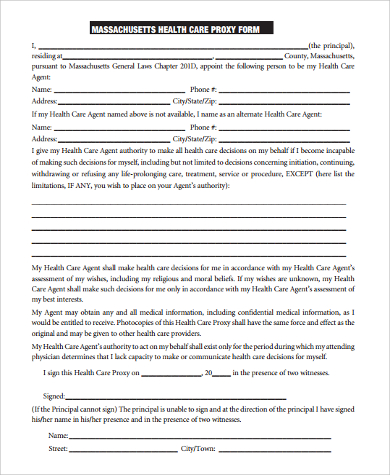So for instance, think about a strategy with a $5,000 in-network deductible and a $7,000 cap on in-network out-of-pocket costs. The patient has a small surgical treatment that costs $4,000 after the insurance company's network-negotiated discount rate but consists of an additional $1,500 expense from an out-of-network anesthesiologist. The client will have to pay the anesthesiologist's bill, however a total of $5,500 will be credited towards his out-of-pocket limit for the year, indicating he'll only require to invest another $1,500 before his insurance starts to pay all of his covered in-network bills completely.
Some states have actually tackled the https://transformationstreatment1.blogspot.com/2020/06/drug-addiction-delray-florida.html problem by themselves, however in a lot of states, surprise balance expenses are still typical. So in general, the more concerns you ask ahead of time, the better off you'll be. Inquire about the insurance network involvement of any providers who might treat youdirectly, or indirectly, as would hold true with durable medical equipment supplies, radiologists, and laboratories.
Welcome to Medical Economics' blog section which features contributions from members of the medical community. These blogs are an opportunity for blog writers to engage with readers about a topic that is leading of mind, whether it is practice management, experiences with patients, the industry, medicine in general, or healthcare reform.

In the present day, healthcare has pertained to imply every element, service and device for taking care of your health. It has actually ended up being conscripted by federal government, politicians, political ideologues, third parties and media to conveniently and nicely specify whatever they wish to "give" you. By simply ending up being involved, these middlemen are watering down the quality of the actual health service you can accomplish, be they federal government or insurance companies.
Healthcare is not a thing at all to be offered, bought or offered, however an entire environment with numerous special moving parts that are just linked by virtue of the existence of the clients. Each patient, having private requirements, will have a landscape that matches the requirements of their own health, and one that will alter with time.
The Greatest Guide To Which Of The Following Is The Largest Single Source Of Reimbursement For Home Health Care Services?
The bigger health care landscape includes all goods, services, and payment mechanisms for accomplishing and maintaining one's health. It includes, however is not limited to: doctor workplaces, hospitals, laboratories, radiology centers, physical treatment offices, pharmaceutical companies, drug stores, and now medical insurance companies, group acquiring organizations, pharmacy advantage supervisors, business health care systems, and mixes of insurance/PBM/pharmacy and far more.
In 100 percent of interactions, insurance has actually placed itself. For simpler interactions, insurance coverage serves to keep expenses hidden and high. Health insurance was initially an economical stop-gap/stop-loss step to help individuals mitigate pricey life-threatening health danger expenses, like those triggered by illness and trauma. Now, through 100 years of government intervention, law and "health policy," health insurance has become puffed up, pricey, ineffective and hard to gain access to and use.
Medical insurance is neither health nor health care, however only a third-party payment mechanism. When you have government sponsored taxpayer paid health insurance coverage like Medicare or Medicaid, federal government entities and political leaders and their paid third-party administrators decide what you can and can not have. When you have company sponsored medical insurance, the company "buys" the policy with cash that you have actually earned or merited for your settlement bundle.
See how both scenarios additional divorce the client from option and from the doctor or other care entities?Free market principles have actually not stopped working health care, but healthcare hasn't been allowed to naturally utilize the free market in almost a century (how to complete the missouri department of health and senior services family care safety registry). (Not too remarkably, due to federal and state federal government laws and policies, numerous elements of the healthcare community have actually been manipulated, cancelled or downright outlawed.
How can a private pick and choose on their own if government and 3rd parties are paying? They can't. There's the rub for https://goo.gl/maps/Pfs84VUS1uAqB5AQA all who advocate socialized medication, federal government single-payer, employer based health insurance coverage, or anything but the first-party deal of the client picking and paying the caretaker straight. So "healthcare"- all the industries, interests, services and products that make up the ecosystem-must be permitted by government to accept the efficiency and fairness of the free enterprise.
Fascination About Surgical Site Infections In America And How Many Are Treated In Home Health Care Services
The free enterprise reacts to needs and desires by offering these items and services with exceptional quality, efficiency and numerous rate choices. Quality goes up and cost boils down through free enterprise competitors, not government edict. All patients, governments, and all of, so-called, "healthcare," would gain from direct free enterprise competition.

So, let's not use the word "healthcare," as it is far too broad. Individuals keep getting it puzzled with insurance coverage "protection." There's medical insurance, which must be called sickness insurance. And healthcare, which is what physicians do. Individuals need to be accountable to look after their own health with their own special worth systems.
Health service delivery systems that are safe, accessible, high quality, people-centred, and incorporated are vital for moving towards universal health coverage. Service delivery systems are responsible for providing health services for patients, individuals, households, communities and populations in basic, and not only take care of patients. While patient-centred care is frequently understood as focusing on the specific seeking care (the client), people-centred care encompasses these clinical encounters and also includes attention to the health of people in their communities and their important role in forming health policy and health services.
WHO is supporting countries in moving towards universal health protection through enhancing the effectiveness and effectiveness of their health service shipment systems.
1. A company entity that provides inpatient or outpatient screening or treatment of human illness or dysfunction; giving of drugs or medical gadgets for treating human illness or dysfunction. 2. A procedure carried out on an individual for diagnosing or dealing with a disease (who pays for home health care services).
Little Known Facts About Where Are Most Personal Health Care Services Provided?.
HEALTH SYSTEM: all the activities whose primary function is to promote, restore or maintain health (The World Health Report 2000 Health systems: enhancing efficiency) MEANINGS FROM THE WHO GLOSSARY OF TERMS (offered at: http://www.wpro.who.int/chips/chip04/definitions.htm). A healthcare facility that offers a range of various services for clients of various age groups and with varying illness conditions.
A hospital at the first referral level that is accountable for a district or a defined geographical area including a specified population and governed by a politico-administrative organization such as a district health management team. The function of district hospitals in main health care has actually been broadened beyond being dominantly curative and corrective to consist of promotional, preventive, and educational roles as part of a primary health-care approach - in the united states today.
A centre that supplies services which are generally the very first point of contact with a health specialist. They include services offered by family doctors, dental experts, community nurses, pharmacists and midwives, among others. All graduates of any professors or school of medication, actually operating in the nation in any medical field (practice, teaching, administration, research, laboratory, etc.).
The person might or may not have previous nursing education. All persons who have finished a programme of fundamental nursing education and are qualified and signed up or licensed to offer accountable and qualified service for the promo of health, prevention of disease, the care of the sick, and rehabilitation, and are in fact working in the nation.